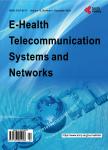The Impact of Total Quality Management on Health Services Improvement, Sana’a Hospitals, Yemen (2017-2020)
The Impact of Total Quality Management on Health Services Improvement, Sana’a Hospitals, Yemen (2017-2020)作者机构:Sana’a Health Office Ministry of Public Health and Population Sana’a Yemen Omdurman University-Sudan Omdurman Sudan Yemen Field Epidemiology Training Program Ministry of Public Health and Population Sana’a Yemen
出 版 物:《E-Health Telecommunication Systems and Networks》 (远程医疗系统和网络(英文))
年 卷 期:2022年第11卷第3期
页 面:109-130页
学科分类:120202[管理学-企业管理(含:财务管理、市场营销、人力资源管理)] 12[管理学] 1202[管理学-工商管理]
主 题:Total Quality Management Quality Health Service Improvement Hospital Yemen
摘 要:Background: Total quality management (TQM) plays a major role in quality health services improvement. The aims of the study are to identify the concepts of total quality management in health institutions to know the nature of the relationship between the application of TQM and improving the quality of health services in Sana’a Governorate. Method: This applied research is a descriptive cross-sectional study in which the TQM of 13 affiliated Sana’a Governorate hospitals during “2017-2020, were evaluated based on self-administered questionnaires. Data were collected by questionnaires including demographical variables, TQM dimensions variables. Data were analyzed by using SPSS version 16. Results: A total of 281 users 98.6% had responded. The employee’s responses for sixth study dimensions were the top manager’s commitment (TMC) 80.46%, customers focusing CF 81.55%, continuous improvement (CI) 82.32%, training (T) 71.51%, and strategic planning of the quality (SPQ) 74.76%, health services quality improvement (HSQI) 74.25%. There is a strong relationship between TQM and HSQI. There is no relationship between demographic factors gender, profession, years of experience, except age with TMC, T, HSQI, qualification with the TMC, CI, T, HSQI and job with all study variables. Conclusion: The application of TQM at hospitals in quality of health services improvement has several challenges, lacking staff experience and lacking leadership support, weakness of the training, customers focusing, continuous improvement, and strategic planning of the quality. Therefore, benefiting from the experiences of leading hospitals in implementing total quality management programs by sending some cadres to these hospitals for training and gaining experience or by hosting experienced cadres to conduct training courses is recommended.



